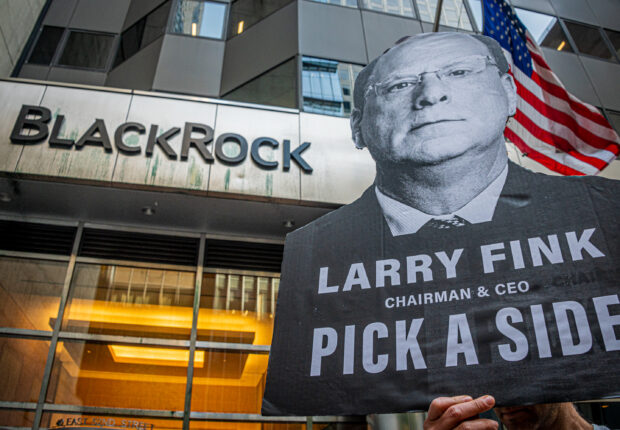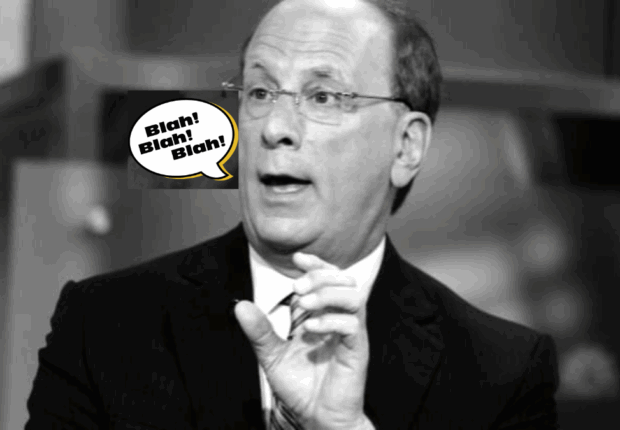At UK bank Barclays' AGM (May 5, 2021), BlackRock abstained from a vote on a shareholder proposal calling on the bank to set targets to phase out its provision of financial services to fossil fuel projects and companies in line with the Paris climate goals, and report annually on progress towards those targets.
The International Energy Agency’s recent groundbreaking report makes it clear that reaching net zero emissions by 2050 means no new investments in new fossil fuel extraction from now on. While investors like BlackRock need to drive this message home to the fossil fuel sector directly, it also needs to recognize that no new coal, oil, or gas development can go ahead without the financial support of big banks, investors, and insurers.
BlackRock, Vanguard, and other major asset managers are major shareholders of many of these banks. If these big fund managers want to play their role in stopping runaway climate change, they need to ensure the big financial institutions they invest in are not funding companies and projects that expand the fossil fuel sector.
Banks have been critical in funding the climate crisis. The Banking on Climate Chaos report shows the world’s 60 largest banks have poured a total of $3.8 trillion into fossil fuels from 2016 to 2020.
Barclays is No.7 in the world on this list of top fossil fuel financiers, and No.1 in Europe, lending $27 billion to the coal, oil and gas sectors in 2020 alone. This shows how woefully inadequate BlackRock’s failure to support this resolution is.
Both Barclays and BlackRock have net zero by 2050 goals, yet Barclays’ current fossil fuel lending activities and policies undermine these goals, as does BlackRock’s failure to vote for this resolution.
Unpacking BlackRock’s irrational rationale
Blackrock’s voting decision is made even more disappointing by the apparent lack of intellectual integrity applied by the firm in its rationale for abstaining from the vote.
BlackRock claims the phrase “financial services” in the resolution wording was too broad and vague, despite the explanatory information provided in a footnote (“Particularly its financing activities, including project finance, corporate finance and underwriting”). However, that exact phrasing and footnote were included in a 2020 resolution proposed by Barclays itself, which BlackRock voted FOR (see resolution 29 on 2020 NOM).
Further contradiction in BlackRock’s voting rationale can be seen in its claim that the resolution lacked specificity on timelines and evidence of progress. BlackRock and other investors have been quick to reject resolutions that call for more concrete action to manage climate change risks, which they have seen as overly prescriptive. For example, BlackRock voted against an April 2021 shareholder proposal calling on Australian gas producer Woodside to manage down oil and gas production in line with the Paris climate goals.
Finally, the voting rationale at one point states “we are in agreement with the ask of the resolution, regarding closer alignment with the goals of the Paris Agreement,” and at another “the company’s climate strategy, disclosures and oversight of climate risk and opportunities are currently in line with [Blackrock Investment Stewardship’s] expectations.”
How can both of these statements be true? Does BlackRock believe Barclays’ climate strategy needs to improve to align with Paris, or is it content with where the company is at?
These contradictions demonstrate a lack of coherence and integrity in BlackRock’s voting decision-making processes, which is of grave concern given the power the world’s largest asset manager has to shape corporate action to combat climate change.
If BlackRock wants to claim leadership on climate action, it must actually demonstrate leadership by voting in favor of shareholder resolutions demanding companies align with the Paris climate goals and vote against boards of directors failing to act on climate.
Guest authors: Will van de Pol & Adam McGibbon of Market Forces

